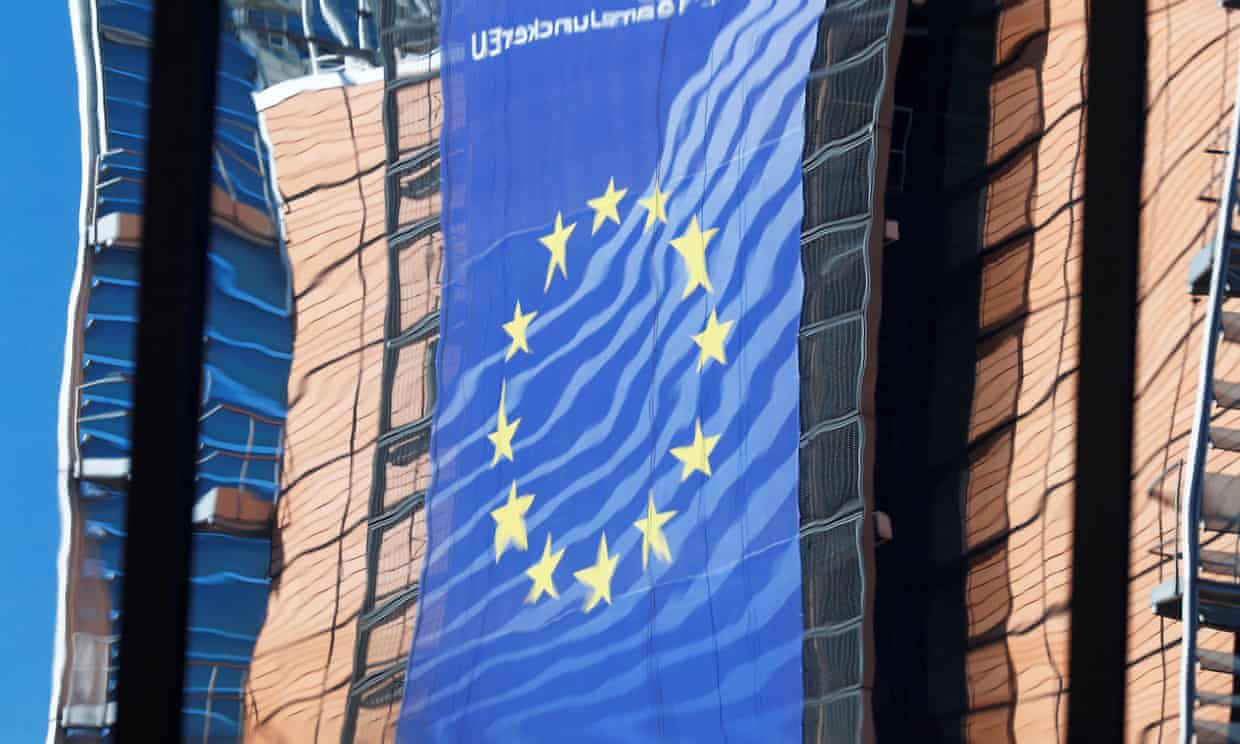
Whether it’s taking on Boris Johnson, Nigel Farage, Germany’s AfD or Italy’s Matteo Salvini, this is one and the same struggle
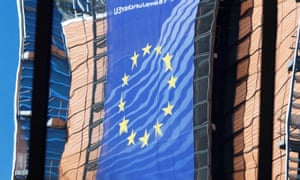
John Bull has been having a breakdown, and he’s getting worse, so now his housemates gather in the kitchen to decide what to do about him. Feisty Emmanuel from France thinks John is messing up all their lives, and they should kick him out of the house. After all, that bull-necked English egotist said he wanted to leave three years ago. Living up to her nickname Mutti, Angela is much more sympathetic. Donald, who hails from Poland, says John should be given “time and space” to sort himself out. Watch the next episode of Brexit, Europe’s most-viewed soap opera, this Wednesday evening.
They have never followed UK politics more closely. ‘It's better than anything on Netflix,' says Aleksander Kwaśniewski
One of the paradoxical results of Britain’s Brexit breakdown is that continental Europeans have never followed British politics more closely. “It’s better than anything on Netflix,” says the former Polish president Aleksander Kwaśniewski. Another paradox is that Britain has never been more dependent on its EU partners than it is now, when it proposes to abandon them. In a kind of sadomasochistic self-fulfilling prophecy, the Brexiteers have reduced Britain to the very condition of vassalage from which they claim to be freeing it. Theresa May will have to take pretty much whatever medicine she is given in Brussels at Wednesday’s emergency European council meeting. Drink up, Theresa.
Yet what follows ineluctably from that humiliating asymmetry of power is that continental Europe is not merely a spectator of the Brexit soap opera but also a key player in it. If Brexit is the British politics of Europe, there is also a European politics of Brexit. Just as the British politics often has little to do with the real Europe, so the European politics is not just about Britain. Personal ambition, party political calculations in the European elections and competing visions for the EU all play a role.
At the Munich security conference this year, I moderated a discussion with the European commission’s Brexit negotiator, Michel Barnier. At one point, a British participant tried to persuade him to allow an indefinite extension of article 50. I will never forget the look of sheer horror on the tall Frenchman’s face as he cried, in his delightfully accented English: “You mean, we go on negotiating!” A groundhog day future seemed momentarily to appear before his eyes in which, instead of going on to higher things, perhaps as president of the EC, he would spend the rest of his life negotiating Brexit.
If Britain does not participate in the European elections, the socialist grouping in the European parliament will lose a large group of Labour MEPs – boosting the chances of both the European People’s party, whose lead candidate Manfred Weber wants to be the next commission president, and of the liberal grouping, whose leader, Guy Verhofstadt, happens to be the parliament’s point man on Brexit. Most important, the French president, Emmanuel Macron, – a cross between Charles de Gaulle and Jacques Delors, with a dash of Napoleon added in – feels this year may be his last big chance to push through the reforms needed to make a Europe fit for the 21st century. No one, and especially not les Anglais, should stand in his way.
The interplay between the British and European politics of Brexit creates strange bedfellows: none stranger than the English arch-Brexiteer Jacob Rees-Mogg and the Belgian arch-Eurofederalist Verhofstadt. Ramping up the fears of an obstructive Britain, Rees-Mogg tweeted last week: “If a long extension leaves us stuck in the EU we should be as difficult as possible. We could veto any increase in the budget, obstruct the putative EU army and block Mr Macron’s integrationist schemes.”
His little ploy worked. The tweet was quoted at a meeting of EU27 ambassadors in Brussels by those, led by the French, who want a hard line against Britain. And it was retweeted by Verhofstadt with this revealing comment: “For those in the EU who may be tempted to further extend the #Brexit saga, I can only say, be careful what you wish for,” followed by a winking emoji. Well wink-wink to you, Guy.
Joking apart, I am shocked and saddened to see how many continental Europeans, including long-term friends and admirers of Britain, have given up on us. We British Europeans should be under no illusions: the cupboard of goodwill is almost bare. Sickness metaphors abound. Brexit Britain is now seen as a poison, a gangrenous limb, a cancer to be cut out – the body of Europe healthier without it. Even wise, cool heads, such as the French diplomatist Jean-Marie Guéhenno, are seriously countenancing the idea that a no-deal Brexit may be better than prolonging the agony.
Fortunately these counsels seem unlikely to prevail on Wednesday. Led by the European council president, Donald Tusk, Ireland’s taoiseach, Leo Varadkar, and the German chancellor, Angela Merkel (who May is visiting in Berlin today), most heads of government will probably conclude that the EU cannot take the risk of, and the blame for, obliging Rees-Mogg and his Brextremists by effectively pushing Britain out. That would poison cross-Channel relations for a generation, and put Ireland in an impossible bind.
Some are moved by the pleas of millions of British Europeans, projecting SOSin the colours of the EU on the white cliffs of Dover, and saying, “Give us one last chance to turn this around.” And they can see that the British politics of Brexit is at long last beginning to move away from the hard Brexiteers. Many well understand that having Britain out will damage the prospects of building a Europe strong enough to face an increasingly assertive China, Donald Trump’s US and the existential challenge of climate change. Almost all would, at a minimum, go the extra kilometre to secure an orderly Brexit.
A reasonable deal this week would have at least three elements. First, a flexible article 50 extension of up to one year, although nine months should be sufficient. Second, a kind of self-denying ordinance in which the UK commits, for this extension period, not to mess up the EU in the way Rees-Mogg threatens, and recuses itself from the battle over the top jobs in the EU. Ideally, this should come as a British offer, rather than a set of imposed conditions. With the help of a cross-party majority in the UK parliament, this should, then, so far as possible, be domestically “Boris-proofed” – ringfenced against a possible Brexiteer successor to May such as Boris Johnson.
Third, Britain must commit to participating in the European elections. We British Europeans should take that as our next great challenge. In another tweet, Rees-Mogg approvingly quoted a speech in the Bundestag by Alice Weidel, of the far-right, populist Alternative für Deutschland. And there’s the point: our British struggle with the Rees-Moggs, Johnsons and Nigel Farages is not separate from the Germans’ struggle with the AfD, the Italians’ with the far-right deputy prime minister, Matteo Salvini, the Poles’ with their nationalist PiS party, and Macron’s with the hardliner Marine le Pen. It is one and the same struggle. It is the battle for Europe.
Of course the Brexit soap opera must come to an end, preferably sooner rather than later. But so long as it lasts, let’s ensure that it’s Friends, rather than a combination of Dad’s Army and Das Boot.
The Guardian

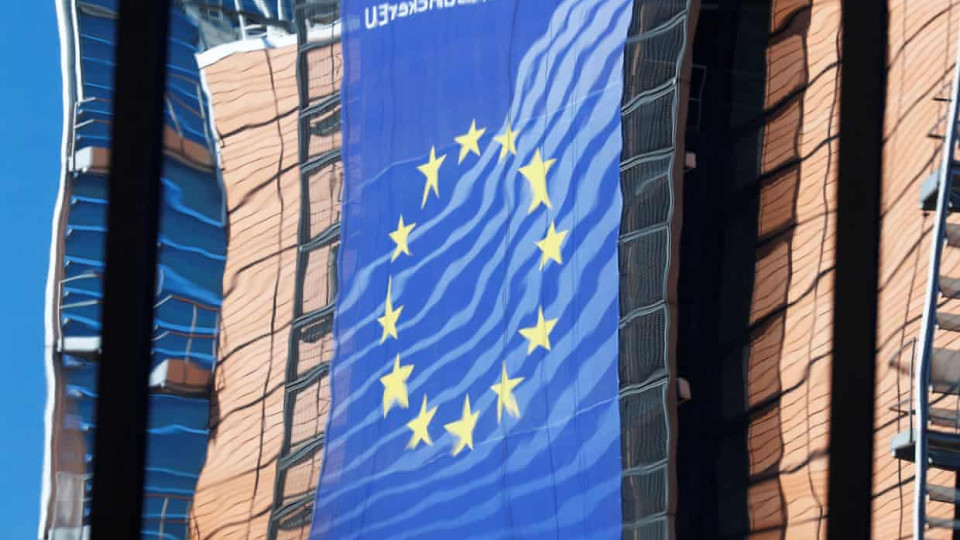

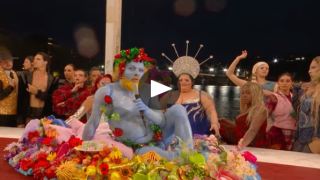
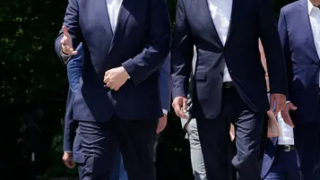

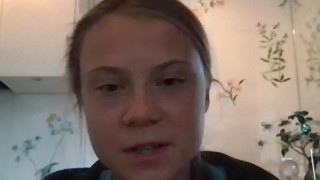




Leave a comment